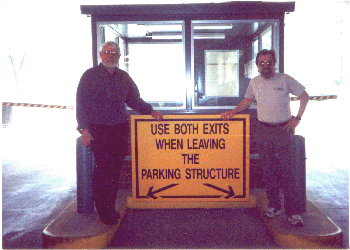
PHILOSOPHICAL FOUNDATIONS OF
QUANTUM THEORY
Aim of the course: The aim
of the course is to make the students familiar with the philosophical
foundations of quantum theory, such as the structure and interpretation
of quantum mechanics, the question of nonlocality and causality, the
EPR problem and the Bell inequalities, the Kochen-Specker theorems and
the quantum logical approach.
Prerequisites for the course: The
course is self-contained; it does not presuppose the knowledge of
quantum mechanics or the mathematical foundations thereof.
Course schedule:
- The formalism
of quantum theory
- States and observables
- The Hilbert space
- Gleason's
theorem
- The quantum theory of spin
- The EPR argument
- The Bell inequalities
- The logico-algebraic approach
- Quantum
probability
- The
Kochen-Specker theorem
- Quantum measurement
- Interpretations
of quantum theory
Literature:
- M. Dickson: "Non-relativistic Quantum Mechanics," in J. Butterfield and J. Earman (eds.): Philosophy of Physics, Elsevier, 2007.
- R. I. G.
Hughes: The Structure and
Interpretation of Quantum Mechanics, Cambridge: Harward
University Press, 1989.
- J. M. Jauch: Foundations of Quantum Mechanics, Massachussetts: Addison-Wesley Publishing Company, 1968.
- M. Readhead: Incompleteness, Nonlocality, and Realism,
Oxford: Clarendon Press, 1987.
- L. Ruetsche: Interpreting Quantum Theories, Oxford: Clarendon Press, 2011.
Introductory notes on the mathematics needed for quantum theory: pdf.
Lecture notes: here.
Reader: here.